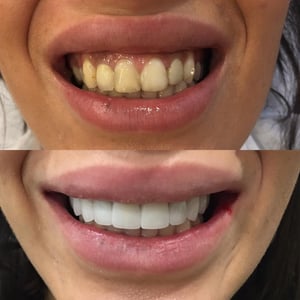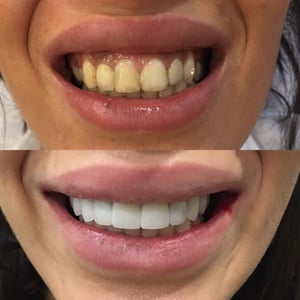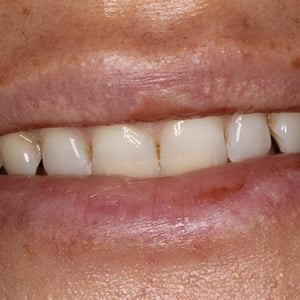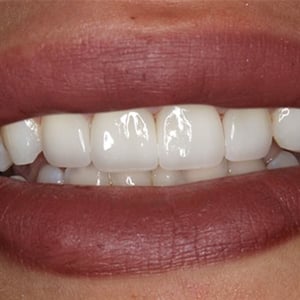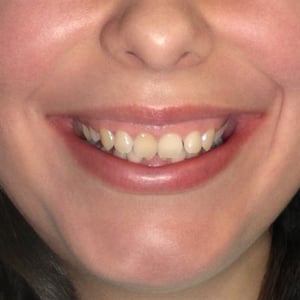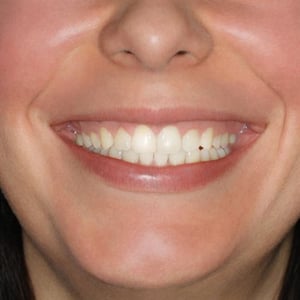Over time, issues arising from wear and tear, tooth loss due to health reasons, or inadequate oral care can lead to various dental health problems for an individual. These issues may result in discomfort during daily activities, the formation of pain, or aesthetic concerns. Dental veneers, in this context, offer a permanent solution.
Types of Dental Veneers
Teeth, which we use extensively throughout the day for nourishment, may become worn or damaged due to various reasons. One of the methods used in such cases is dental veneers. Categorically, dental veneers can be divided into two main types: traditional dental veneers and crown dental veneers. These veneer methods have different variations based on their application and the materials used.
With the advancement of technology, an array of dental veneer options has been developed with the primary goal of creating veneers that are most compatible with the human body and do not disrupt the oral flora. Dental veneers can be chosen for health-related reasons as well as for aesthetic purposes. Therefore, after consulting with a specialist, the most suitable veneer method should be chosen.
Difference Between Crown Veneers and Traditional Dental Veneers
The fundamental differences between these two dental veneer methods can be summarized under five headings. After considering these five factors, the appropriate veneer choice can be determined.
- Materials Used: The most significant distinction between these two methods is the material factor. The primary materials used for crown veneers are zirconium and porcelain. Classic dental veneer methods employ composite and porcelain with metal alloy materials.
- Area of Application: The choice of dental veneer type varies depending on the region in the mouth that requires veneers. While crown veneers can be applied throughout the mouth, traditional dental veneers are generally preferred for covering the front surface of teeth. This factor is crucial for the permanent completion of the dental veneer process.
- Durability: Another factor that can affect the permanent outcome of the veneer process is the durability of the veneers. Zirconium veneers used in crown methods have been determined to be more durable than other materials. The materials used in traditional veneer methods vary depending on the condition of the tooth and the area of application.
- Aesthetic Appearance: Particularly for individuals seeking dental veneers for aesthetic reasons rather than health reasons, the decisive factor is likely to be the visual outcome. Due to the structure and light permeability of the materials used, crown veneers can often provide a more aesthetic appearance inside the mouth.
- Preparation Process: Due to the materials used and the production process, crown veneer methods require multiple appointments. The preparation process is consequently longer. On the other hand, the treatment and production process of traditional dental veneer methods is generally completed in a shorter period.
What is Composite Dental Veneers?
Composite dental veneers, also known as resin veneers, are recognized for their use of resin that matches the color of the teeth. It is not only utilized for visual alignment but also serves as a dental treatment. It is used for treating tooth decay, correcting tooth shape and size, and eliminating tooth stains. Additionally, it can effectively address gaps between teeth, making it an ideal option for those seeking both health-related and aesthetic benefits. While composite dental veneers are often the preferred choice due to their compatibility with natural teeth color and their quick recovery time, it may not be suitable for every tooth condition, especially for cases involving deep cavities.
Types of Crown Veneers
Crown dental veneers, crafted from high-quality ceramic materials such as porcelain or zirconium, offer an ideal fit with natural teeth. These materials ensure both visual harmony with natural teeth and a natural appearance. Furthermore, they improve the shape, size, and color of teeth, contributing to a harmonious aesthetic smile.
Porcelain Crown Dental Veneers: Another option among the crown dental veneer methods is porcelain veneers. Porcelain veneers ensure aesthetically pleasing results that seamlessly blend with natural teeth. Porcelain, owing to its compatibility with natural tooth color and light permeability, provides a natural look for the veneers. Moreover, porcelain crown dental veneers are durable and offer a long-lasting solution.
Zirconium Crown Dental Veneers: With recent technological advancements, zirconium veneers have become a popular choice in recent years. Zirconium veneers are renowned for their durability and longevity, making them a preferred crown veneer option. Zirconium is also noted for its light permeability, resembling the characteristics of natural teeth. Consequently, zirconium veneers provide a natural smile. Additionally, zirconium veneers reduce the risk of allergic reactions and blend well with gum tissues.
How Should Dental Veneer Care Be?
Regardless of the type of dental veneer received, there are important post-treatment care guidelines to follow:
- Emphasize dental hygiene. Regular cleaning is vital for maintaining veneers' effectiveness. Neglecting proper cleaning can compromise both veneer function and contribute to new dental issues.
- Pay attention to gum health. Gum diseases can impact the surrounding tissues and may lead to veneer displacement or damage.
- Be cautious with abrasive substances. Even the most durable veneers have limits when it comes to abrasive materials. Using a soft-bristle toothbrush and recommended toothpaste is advised.
- Avoid hard and sticky foods. Chewing on hard-shelled foods or sticky sweets can damage or dislodge veneers.
Dental Veneers Prices in Turkey
The cost of dental veneers varies based on the number of teeth to be treated and the chosen method. When deciding to undergo dental veneer treatment, it is crucial to pay attention to several important factors. The foremost consideration is the reputation of the clinic, the expertise of the dental professionals, the quality of veneer materials used, and the hygiene standards maintained.
Adhering to global standards, Estethica continues to prioritize making dental veneer treatments accessible to everyone by keeping prices at a competitive level in Turkey.
.jpeg)
